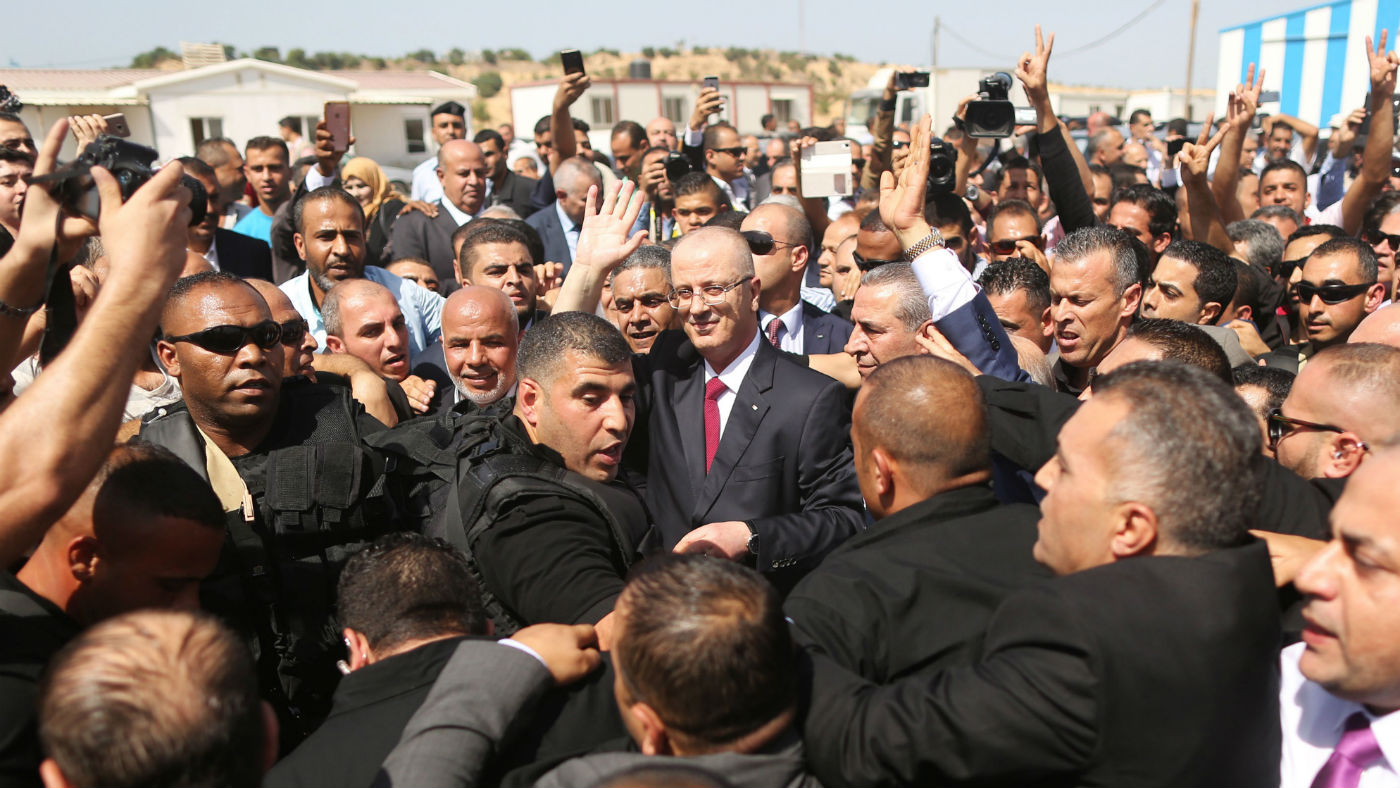Hamas reconciles with Palestinian Authority in Gaza
The Islamist group’s unity drive has been prompted by a funding shortfall resulting from the Qatar blockade

A free daily email with the biggest news stories of the day – and the best features from TheWeek.com
You are now subscribed
Your newsletter sign-up was successful
Hamas and the mainstream Palestinian Authority took a further step towards reconciliation on Monday as the West Bank-based Palestinian Prime Minister Rami al-Hamdallah crossed into the Gaza Strip, more than a decade after the Islamist group seized control of the territory in a bitter civil war.
Hamas has been more open to working with the Palestinian Authority since Egypt, Saudi Arabia and the United Arab Emirates imposed an economic boycott on its main donor, Qatar, over its alleged support of terrorism.
Last month, the group, which is still classed as a terrorist organisation by Israel, the US and the EU, disbanded its Gaza shadow government before announcing last week that it was handing over administrative control of Gaza to a unity government headed by Hamdallah.
The Week
Escape your echo chamber. Get the facts behind the news, plus analysis from multiple perspectives.

Sign up for The Week's Free Newsletters
From our morning news briefing to a weekly Good News Newsletter, get the best of The Week delivered directly to your inbox.
From our morning news briefing to a weekly Good News Newsletter, get the best of The Week delivered directly to your inbox.
While the movement’s armed wing “remains the dominant power in the Palestinian enclave of two million people”, Reuters says, the “narrowing internal divisions could help western-backed [Palestinian President Mahmoud] Abbas counter Israel’s argument that it has no negotiating partner for peace with the Palestinians”.
Michael Oren, Israel’s deputy minister for diplomacy, played down the unity drive, saying “it happens every two or three years”. Hamas remains dedicated to Israel’s destruction, he said, and if the group was able to retain its arms, peace negotiations would be a “a non-starter for Israel”.
The new Palestinian unity cabinet is expected to meet in Gaza on Tuesday to set a date for presidential and parliamentary elections.
A free daily email with the biggest news stories of the day – and the best features from TheWeek.com
-
 Local elections 2026: where are they and who is expected to win?
Local elections 2026: where are they and who is expected to win?The Explainer Labour is braced for heavy losses and U-turn on postponing some council elections hasn’t helped the party’s prospects
-
 6 of the world’s most accessible destinations
6 of the world’s most accessible destinationsThe Week Recommends Experience all of Berlin, Singapore and Sydney
-
 How the FCC’s ‘equal time’ rule works
How the FCC’s ‘equal time’ rule worksIn the Spotlight The law is at the heart of the Colbert-CBS conflict
-
 Epstein files topple law CEO, roil UK government
Epstein files topple law CEO, roil UK governmentSpeed Read Peter Mandelson, Britain’s former ambassador to the US, is caught up in the scandal
-
 Iran and US prepare to meet after skirmishes
Iran and US prepare to meet after skirmishesSpeed Read The incident comes amid heightened tensions in the Middle East
-
 Israel retrieves final hostage’s body from Gaza
Israel retrieves final hostage’s body from GazaSpeed Read The 24-year-old police officer was killed during the initial Hamas attack
-
 China’s Xi targets top general in growing purge
China’s Xi targets top general in growing purgeSpeed Read Zhang Youxia is being investigated over ‘grave violations’ of the law
-
 Panama and Canada are negotiating over a crucial copper mine
Panama and Canada are negotiating over a crucial copper mineIn the Spotlight Panama is set to make a final decision on the mine this summer
-
 Why Greenland’s natural resources are nearly impossible to mine
Why Greenland’s natural resources are nearly impossible to mineThe Explainer The country’s natural landscape makes the task extremely difficult
-
 Iran cuts internet as protests escalate
Iran cuts internet as protests escalateSpeed Reada Government buildings across the country have been set on fire
-
 US nabs ‘shadow’ tanker claimed by Russia
US nabs ‘shadow’ tanker claimed by RussiaSpeed Read The ship was one of two vessels seized by the US military